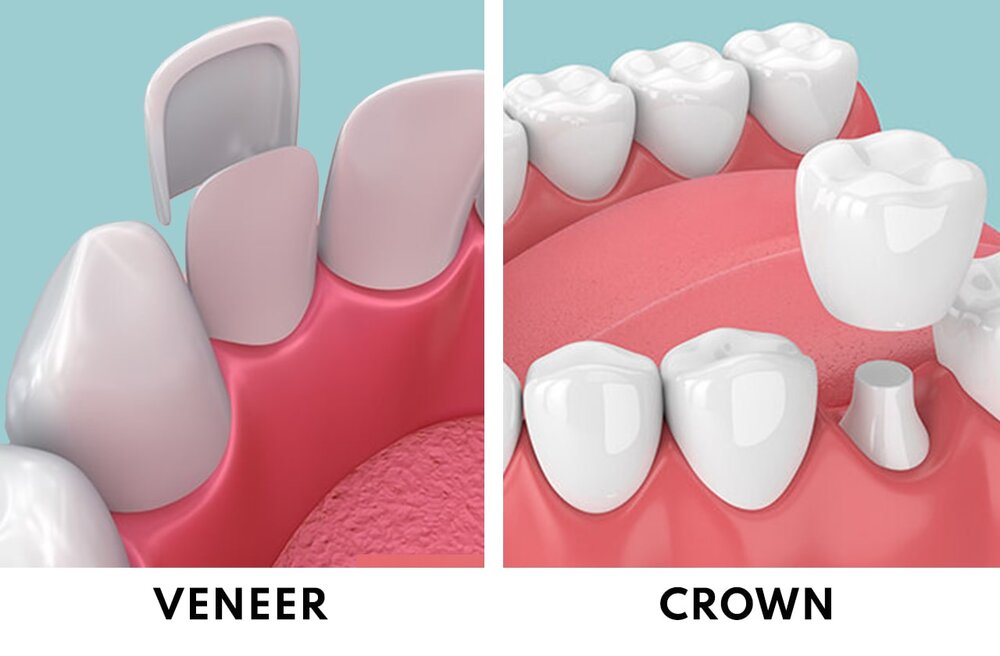
In the world of restorative dentistry, veneers and dental crowns are among the most popular methods for rebuilding both the appearance and function of teeth. While both techniques enhance dental aesthetics and health, they have fundamental differences in application and procedure. Veneers are typically used to correct the color, shape, and size of front teeth, whereas crowns are more often employed to restore damaged or weakened teeth.
The choice between porcelain veneers or crowns depends on multiple factors like the extent of tooth damage, gum health, and the patient’s cosmetic expectations. This article examines the key differences between these methods, their respective applications, treatment procedures, as well as longevity and aftercare. Understanding these details will help you make a more informed decision.
When considering Veneers vs Crowns, remember that both can transform your smile. Whether you’re looking to redesign your smile, repair broken teeth, or improve chewing function, this comprehensive guide will help you choose the best option. Join us as we explore professional tips and practical advice for achieving a beautiful smile and healthy teeth.
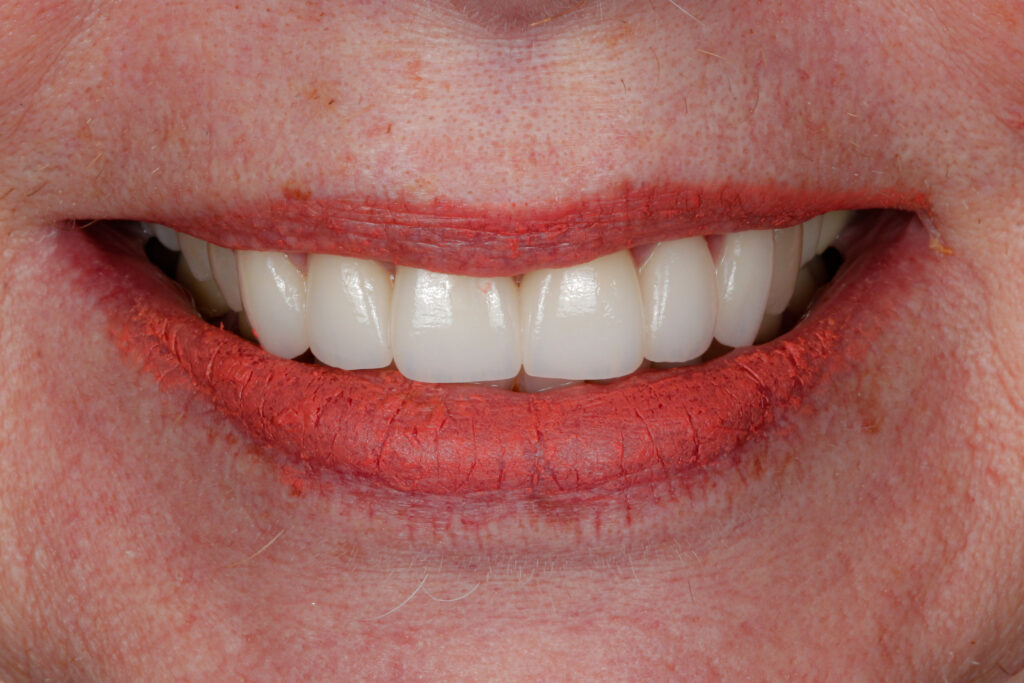
What Are Veneers?
Veneers are thin, custom-made shells of ceramic or composite material that cover the front surface of teeth. This minimally invasive procedure requires only slight enamel reduction (about 0.3-0.7mm) to correct cosmetic issues like discoloration, chips, minor misalignment, and gaps between teeth. Porcelain veneers offer more durability and natural appearance, while composite veneers are quicker and more affordable. The treatment typically takes 2-3 appointments.
When comparing Veneers vs Crowns, it’s important to note that veneer results can last up to 15 years, though success depends on several factors. The quality of materials used, the dentist’s smile design expertise, and patient aftercare (including oral hygiene and avoiding hard foods) all impact veneer longevity. At D’Amico Dental Care, with offices in Watertown and Wayland, this treatment is ideal for those with healthy teeth who want to enhance their smile with durable, natural-looking results.
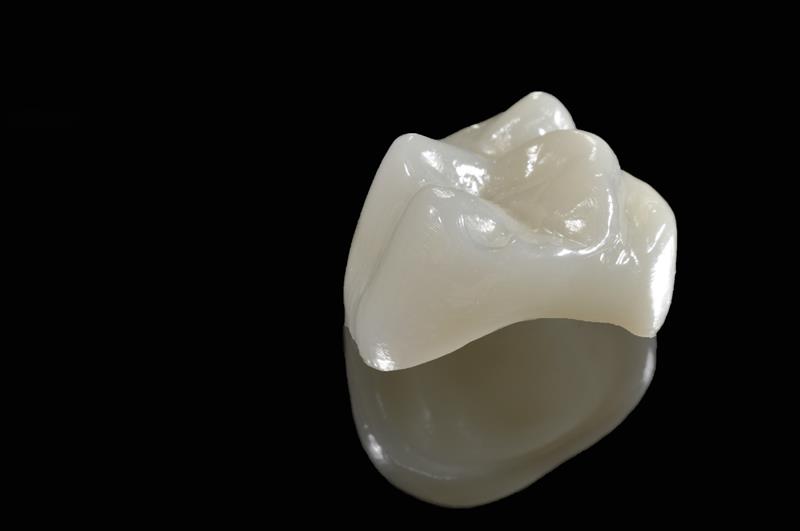
What Are Dental Crowns?
A dental crown, also known as a tooth cap, is a fixed dental prosthesis that completely covers the visible portion of a tooth. The choice between porcelain veneers and crowns depends on multiple factors, such as the extent of tooth damage, gum health, and the patient’s cosmetic expectations. This treatment is used when a tooth’s structure is significantly damaged but its root remains healthy and salvageable.
Crowns are primarily made from various materials, including all-ceramic porcelain, noble metals (like gold or metal alloys), or porcelain-fused-to-metal (PFM). The crown placement process typically takes two appointments, involving tooth preparation, precise impressions, lab fabrication, and final cementation of the permanent crown. This method is ideal for root canal-treated teeth, extensively decayed teeth, or fractured teeth.
Crowns not only restore tooth function but also maintain natural appearance. All-ceramic crowns, the most advanced type, offer the most natural-looking results and are ideal for front teeth, while metal crowns are recommended for back teeth due to their superior strength.
When considering Veneers vs Crowns, it’s important to note that crowns typically last 8-15 years, depending on factors like crown material, dentist’s skill, quality of implementation, and most importantly, the patient’s oral hygiene. Crowns require special care, and regular dental check-ups are essential to monitor their condition.
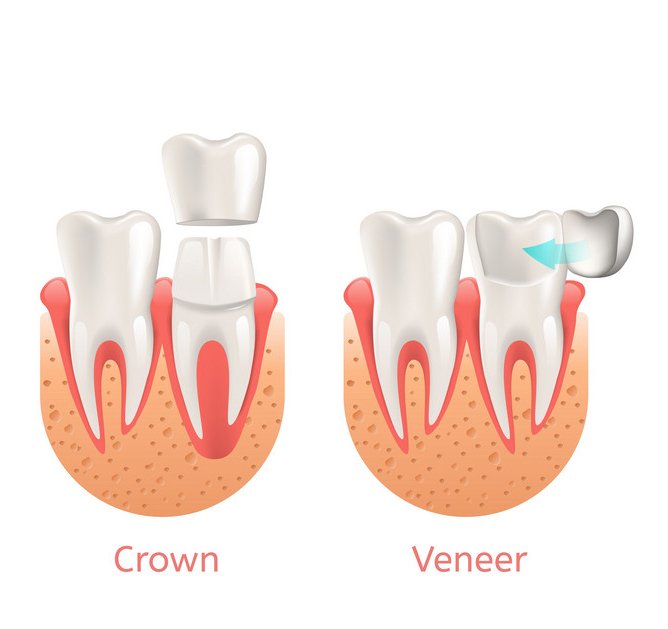
Key Differences Between Veneers and Crowns
Generally speaking, veneers are a conservative cosmetic option, while crowns serve as restorative solutions for damaged teeth. The choice between these two depends on your tooth’s health condition and treatment goals. By understanding their differences, you can make a more informed decision about your dental treatment plan:
- Tooth Reduction:
- Veneers require only 0.3-0.7mm removal from the front surface
- Crowns need a full 360° tooth reduction (about 1.5-2mm)
- Best Uses:
- Veneers mainly address cosmetic concerns (enhancing the color/shape of healthy teeth)
- Crowns restore severely damaged teeth, root canal-treated teeth, or weakened structures
- Coverage:
- Veneers only cover the front surface
- Crowns completely encase the entire tooth
When comparing Veneers vs Crowns, consider these longevity and cost factors:
- Durability:
- Porcelain veneers last 10-15 years
- Crowns typically endure 15-20 years
- Cost:
- Veneers are generally more affordable
- Crowns cost more due to greater material use and functionality
| Criteria | Veneers | Crowns | Clinical Guidance |
| Tooth Preparation | 0.3–0.7mm (front surface only) | 1.5–2mm (full 360° reduction) | Crowns require more irreversible tooth loss. |
| Primary Use | Cosmetic (stains, gaps, minor chips) | Restorative (cracks, decay, post-root canal) | Veneers need >80% healthy enamel |
| Coverage | Facial surface only | Complete tooth encasement | Crowns protect weakened teeth structurally |
| Materials | Porcelain (e.max), composite | Zirconia, PFM, gold, lithium disilicate | Crowns prioritize strength over aesthetics |
| Longevity | 10–15 years | 15–20+ years | Crowns last longer due to full coverage |
| Failure Modes | Debonding (15%), staining | Fracture (5%), recurrent decay (10%) | Crowns fail less but require more prep |
| Ideal Candidates | Healthy teeth needing aesthetic upgrades | Damaged teeth needing structural support |
When to Choose Veneers vs Crowns
Consulting with a dental specialist is essential for accurately assessing your teeth and choosing the best treatment option between dental veneers vs crowns, as sometimes combining both methods (like crowns for back teeth and veneers for front teeth) can deliver optimal results.
When to Choose Veneers:
• Front teeth with cosmetic issues (discoloration, small chips, or minor misalignment)
• When the tooth structure is healthy but needs aesthetic enhancement
• For closing small gaps between teeth (diastema)
• When patients want minimal tooth reduction
When to Choose Crowns:
• Teeth with significant damage (extensive decay or large fractures)
• After root canal treatment, to protect weakened teeth
• Teeth with large fillings that lack sufficient strength
• For restoring function in back teeth (molars)
Key Decision Factors:
• Veneers work best for relatively healthy teeth needing cosmetic improvement
• Crowns become necessary when over 50% of the tooth structure is lost
• For back teeth enduring chewing pressure, crowns are a better option
• In the Veneers vs Crowns debate, remember that veneers require more care and are less impact-resistant
Procedure and Preparation for Veneers and Crowns
Both veneers and dental crowns require specialized tooth preparation, but with different approaches. At D’Amico Dental Care, serving patients in Watertown and Wayland, our dentists carefully remove just 0.3 to 0.7mm from the front tooth surface to create space for thin veneer shells. This minimally invasive process is typically completed in one comfortable visit.
“ In vitro studies showed that the palatal chamfer preparation design increases the risk of developing ceramic fractures. The butt joint preparation design had the least effect on the strength of the tooth. “ pubmed.ncbi.nlm.nih.gov
After taking precise digital impressions, we place temporary veneers while your custom-crafted permanent restorations are being fabricated in our trusted dental lab (typically 2-3 weeks).
When considering Veneers vs Crowns, it’s important to understand that crowns require more extensive preparation – about 1.5 to 2mm of tooth reduction from all sides to accommodate the full coverage. This more complex process usually requires 2-3 dental visits.
Final Steps and Practical Differences:
After tooth preparation:
• Permanent veneers are precisely bonded to the tooth surface and may need minor bite adjustments
• Crowns are first tested for fit with adjacent teeth and bite alignment before permanent cementation
Both options require excellent oral hygiene and follow-up care for long-lasting results.
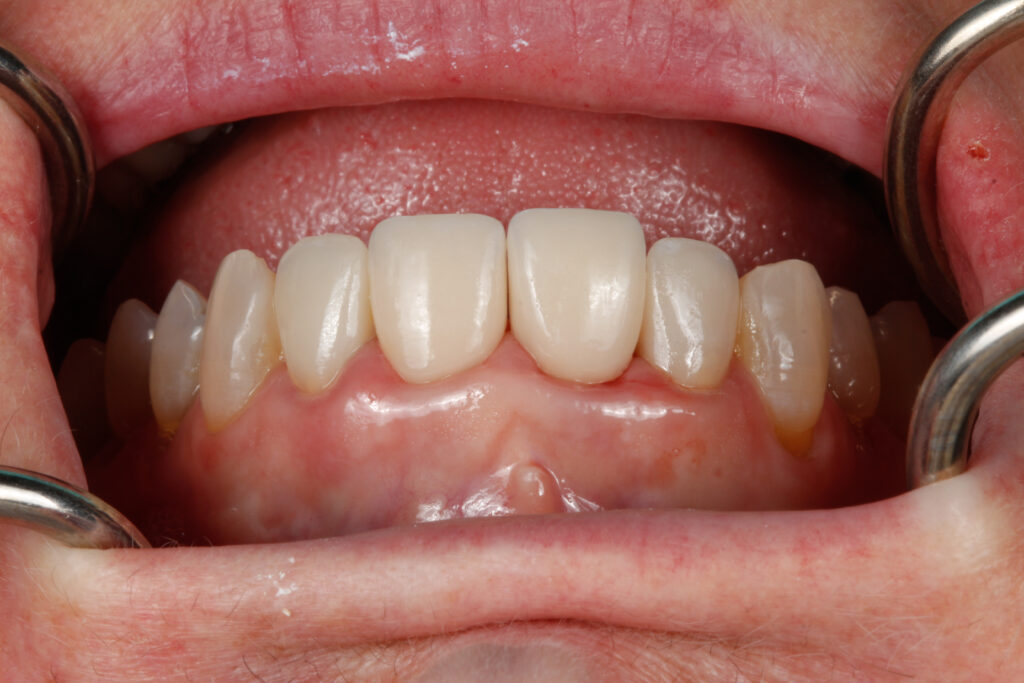
Durability and Longevity: Veneers vs. Crowns
Dental veneers typically last between 10 to 15 years. High-quality porcelain veneers can sometimes endure up to 20 years under ideal conditions, while composite veneers usually require replacement after 5 to 7 years. Several factors affect veneer longevity, including material quality, the dentist’s installation skill, the patient’s oral hygiene habits, and avoiding destructive behaviors like nail-biting or using teeth as tools.
Dental crowns offer superior durability, generally lasting 15 to 25 years. All-metal and zirconia crowns demonstrate the longest lifespan. The key to maximizing crown longevity lies in protecting the underlying tooth from secondary decay. Because crowns fully encase the tooth and evenly distribute chewing forces, they better withstand mechanical pressures.
When comparing Veneers vs Crowns, the fundamental difference is this: while veneers serve primarily as a medium-term cosmetic solution, crowns provide a more permanent restorative option for damaged teeth. Choosing between them should consider your dental condition, personal needs, and expectations regarding treatment longevity.
| Criteria | Porcelain Veneers | Composite Veneers | All-Ceramic Crowns | Zirconia Crowns |
| Average Lifespan | 10-20 years | 5-7 years | 15-20 years | 20-25+ years |
| Maximum Lifespan* | 25 years (rare) | 10 years (with perfect care) | 30 years (gold standard) | 30+ years (highest survival) |
| Failure Modes | Debonding (12%) Margin staining (18%) | Fractures (25%) Discoloration (40%) | Ceramic chipping (8%) | Rare fractures (<3%) |
| Key Strengths | • Natural translucency • Minimal prep | • Quick repair • Low cost | • Excellent aesthetics • Durability | • Extreme strength • Wear resistance |
| Critical Weaknesses | Not for load-bearing areas | High maintenance | Brittle under impact | Less natural light transmission |
Maintenance and Care for Veneers and Crowns
Proper care is essential to maximize the lifespan of both dental veneers vs crowns.
For veneers:
• Use a soft-bristled toothbrush with gentle motions and non-abrasive toothpaste twice daily
• Carefully clean the gumline with implant/veneer-specific floss
• Avoid chewing hard substances like ice, candy, or nails, as they may crack veneers
• Get professional check-ups every 6 months
• Wear a nightguard if you have bruxism (teeth grinding)
When considering Veneers vs Crowns, crown care has some special requirements:
• Maintain regular oral hygiene, but pay extra attention to cleaning under the crown edges with specialty floss
• Antimicrobial mouthwash helps prevent secondary decay around crowns
• Avoid sticky foods like nougat that may loosen crowns
• Annual professional evaluation of crowns and underlying teeth is crucial
• Prompt repairs for any issues are necessary
For both restorations:
• Limit smoking and staining beverages (coffee/tea)
• Get professional cleanings every 6 months
• Consider using a straw for dark liquids to minimize staining
Can Veneers and Crowns Fix Crooked or Chipped Teeth?
Both veneers and crowns can help fix crooked or chipped teeth, but they work quite differently. Veneers are perfect for minor alignment issues and small chips in front teeth. They create a smooth, uniform appearance by covering the tooth’s front surface without changing its underlying structure. Veneers work best for:
• Slightly crooked teeth (when braces aren’t needed)
• Small chips
• Gaps between teeth (diastema)
When comparing Veneers vs Crowns, crowns prove better for severely damaged, broken, or noticeably crooked teeth. They completely encase the tooth and can fully reshape and reposition it. Crowns are recommended for:
• Teeth with large fractures
• Significant misalignment that veneers can’t fix
• Weakened teeth after root canal treatment
Veneers excel at minor cosmetic fixes, while crowns are designed for complete tooth restoration. The best choice depends on your specific dental issue and your dentist’s recommendation.
Who Is a Good Candidate for Veneers or Crowns?
The final decision between dental veneers vs crowns or other cosmetic solutions should only be made after a complete dental examination at D’Amico Dental Care, where our experienced dentists in Watertown and Wayland carefully evaluate all relevant factors.
Ideal Candidates for Veneers:
• People with healthy front teeth needing cosmetic improvements (stains, minor chips, or slight misalignment)
• Patients with sufficient enamel to support veneers
• Those with realistic expectations about aesthetic results
• Non-smokers or those committed to quitting (to prevent veneer staining)
• Individuals with good oral hygiene
Suitable Candidates for Crowns:
• Patients with severely damaged teeth (extensive decay or large fractures)
• Those who’ve had root canal treatment
• People with weakened teeth need protection
• Cases requiring complete tooth function restoration
• Patients with damaged back teeth under chewing pressure
When weighing Veneers vs Crowns, these cases aren’t suitable for either:
• Advanced gum disease (periodontitis)
• Destructive habits like severe teeth grinding (unless using a night guard)
• Untreated active cavities
• Poor commitment to oral hygiene
Expert Tips: Choosing Between Veneers and Crowns for Your Smile
Consulting with a prosthodontist or cosmetic dentist can help determine the best option between porcelain veneers or crowns through a thorough oral evaluation.
1. Key Selection Criteria:
• Tooth Damage Level:
Veneers suit teeth with healthy structure needing cosmetic enhancement, while crowns are designed for damaged or weakened teeth.
• Tooth Position:
Veneers are typically recommended for front teeth, and crowns for back teeth (especially molars).
• Budget & Time:
Composite veneers are more affordable and quicker, but crowns offer greater durability despite higher costs.
2. Expert Recommendations:
• For Pure Aesthetics:
If your main goal is improving the color, shape, or size of front teeth, veneers are preferable.
• For Strength & Function:
When dealing with severe decay, large fractures, or root canal-treated teeth, crowns are the wiser choice.
In the Veneers vs Crowns debate, a hybrid approach sometimes works best: combining veneers for front teeth with crowns for molars can deliver optimal results.
Source: pubmed
FAQ
1. What Are the Structural Differences Between Veneers and Dental Crowns?
Veneers are thin ceramic shells (0.3-0.7 mm) that are bonded only to the front surface of teeth. This minimally invasive approach preserves most of the natural tooth structure. In contrast, dental crowns completely encase the visible portion of the tooth and are thicker (1.5-2 mm), requiring more extensive tooth reduction.
2. Which Dental Issues Is Each Method Suitable For?
- Veneers: Primarily correct cosmetic concerns like discoloration, minor chips, gaps between teeth, or irregular tooth shape (especially front teeth)
- Crowns: Recommended when teeth need full protection/restoration due to extensive decay, large fractures, or after root canal treatment
3. How Is the Tooth Prepared for Each Procedure?
- Veneers: Only a thin layer of enamel (<1 mm) is removed from the front surface
- Crowns: Teeth are reshaped with a significant reduction (60-75% of structure removed) to accommodate the crown
4. How Long Do They Last?
- Veneers: Typically last 10-15 years with proper care
- Crowns: Last longer (15-20 years for all-ceramic crowns) due to complete tooth coverage
Both: Can exceed these durations with excellent oral hygiene and regular checkups.
5. What’s the Price Difference?
- Veneers: Generally 30-40% less expensive than all-ceramic crowns (due to simpler process and less material)
- Exact costs depend on:
• Number of treated teeth
• Materials used
• Dentist’s expertise
6. Maintenance Requirements:
- Both require:
✓ Non-abrasive toothpaste
✓ Flossing
✓ Regular dental checkups (every 6 months) - Veneers: Avoid chewing hard objects to prevent cracks
- Crowns: More durable, but still need protection from excessive force
7. How to Decide Between Them?
- Choose veneers if:
• Teeth are healthy but cosmetically flawed
• Preserving tooth structure is a priority - Opt for crowns when:
• Teeth are weakened/decayed
• Post-root canal protection is needed
The final decision should be made with your dentist after evaluating:
✓ Tooth health
✓ Remaining structure
✓ Aesthetic goals
8. Which Provides More Natural Results?
- Veneers: Offer extremely natural-looking results (especially for front teeth) due to their thinness and bonding technique
- Modern ceramic crowns: Also appear natural, but may have slightly less translucency than veneers
Both: Can be color-matched to your natural teeth.

